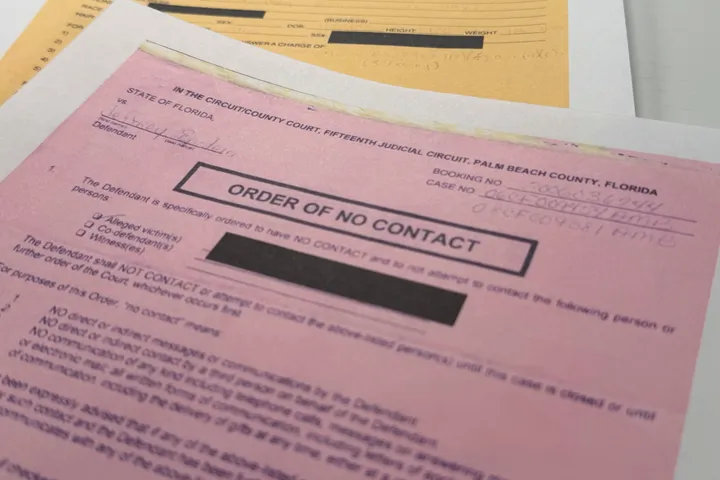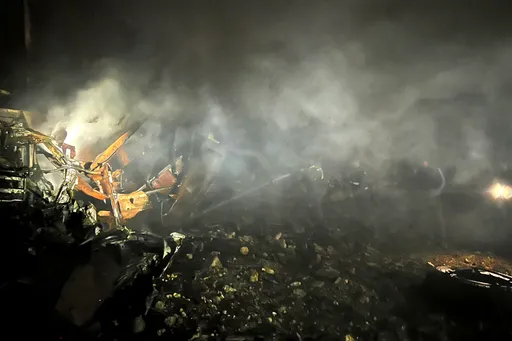The security situation in large parts of northern Nigeria is worsening by the day. The militant group Boko Haram is expanding its operations beyond the northeast of the country. Armed attacks have skyrocketed in the northwest and herdsmen from Nigeria’s Fulani tribe, who have had a long-running battle with farmers in the north-central region, are believed to be behind the recent spate of killings in agrarian communities in significant parts of northern Nigeria.
But it is the increase in kidnappings in the northwest and north-central regions by criminal gangs, often referred to as "bandits", that has created an atmosphere of fear and underscored the high rate of insecurity.
In the last six months, hundreds of students have been kidnapped in at least five separate incidents. In some cases, students have been killed by their kidnappers even after ransoms have been paid.
Although organised crime has been common over the last decade, there are a number of reasons why it has been on the increase in recent months.
First — as reports in the media suggest — the country’s northwest and north-central are gradually becoming safe havens for Boko Haram, which had previously operated solely in the northeast.
Even though the Nigerian government maintains that bandits are responsible for the kidnappings and most of the deadly attacks in the northwest and north-central, there is evidence of Boko Haram’s involvement either directly or by means of collaboration.
For example, when about 344 students were kidnapped from an all-boys school in northwestern Katsina State last December, the state government quickly attributed the incident to bandits. But, hours after the attacks occurred, an audio message from Boko Haram leader, Abubakar Shekau, claimed responsibility for the kidnappings.
Besides, the kidnappings that have taken place in the northwest and north-central regions in the last six months mostly bear the hallmark of the insurgent group's abductions. In most incidents, the attackers storm the schools in the early morning hours, coerce their victims into their vehicles and take them to nearby bushes in the exact same way the Boko Haram seized and transported hundreds of students from their schools in northeastern Nigeria in previous attacks.
Fears of the terror group's expansion beyond the northeast were also confirmed when the government of Nigeria's north-central Niger State announced last week that Boko Haram has hoisted its flags in Kaure and Shiroro local government areas of the state.
“I am confirming that there are Boko Haram elements here in Niger state, here in Kaure, I am confirming that they have hoisted their flags here." Abubakar Sani Bello, Governor of Niger State, which is about 140 km away from Abuja, Nigeria's capital, told reporters a week ago.
“Their wives (referring to women married to men in the affected communities) have been seized from them and forcefully attached to Boko Haram members. I just heard that they have placed their flags at Kaure, meaning they have taken over the territory.”
Fulani-Hausa conflict
While a significant extent of the insecurity in northern Nigeria can be pinned on Boko Haram's expansion in the region, disputes over land that has pitched herdsmen against farmers in parts of the northwest and north-central regions have contributed significantly to the instability of Africa's most populated nation.
The competition between the Fulani ethnic group, who are primarily nomadic pastoralists spread across West Africa, and Hausa farmers has risen in recent years, exacerbated by a drying climate and agricultural intensification. While Fulani herders have been accused of frequently encroaching into Hausa farmlands, Fulanis have generally pointed to mistreatment by the politically dominant Hausas, who they accuse of grabbing their land and often levying them with heavy fines.
The current crisis started seven years ago when Fulanis began attacking Hausa communities. In response, these communities — backed by local governments — formed vigilante groups which carried out extrajudicial action against Fulani herders, while pushing others into the forests.
In a bid to exact revenge, Fulani militants — operating from nearby forests that are vast, unregulated and difficult for security forces to penetrate — began to attack Hausa communities using sophisticated weapons, killing indiscriminately and making large portions of northwestern Nigeria no-go areas.
What has also fuelled instability is the recent growth in informal mining activity in the mineral-rich northwest, particularly in Zamfara State, which has attracted criminal gangs from far and wide. In a region that is experiencing increasing rates of poverty and unemployment, coupled with weak governance and inequality, banditry has become a very attractive business for some youths.
"Unfortunately, Nigeria's poorly funded security agencies don't have enough manpower and resources to deal with these bandits," Nigerian journalist and security analyst, Okon Nya, told TRT World. "There is very poor security at the country's borders and this allows for proliferation of small arms and light weapons amongst criminal groups."
Unfortunately, the activities of these bandits have created huge humanitarian consequences. In the last decade, close to 200,000 people have been displaced from their homes as a result of criminal violence and about 77,000 Nigerians have fled to neighbouring countries.
In the first half of 2020 alone, at least 1,126 people were killed by bandits in northern Nigeria, according to Amnesty International. Given increased reports of attacks and killings by these bandits in the region, that number may well have doubled by now.
"To be fair to the Nigerian government, they've carried out a number of military campaigns, but the massively understaffed security agencies that are involved in a number of operations particularly in the northeast are over overstretched and just can't cope with these heavily equipped bandits," says Nya, who suggests that addressing issues such as "rural development, youth engagement and justice" can help deal with banditry in the region.
As concerns grow across the country, those with firsthand knowledge about the spread of criminal operations in the north have warned that if the Nigerian government fails to act quickly to deal with increased insurgent and bandit operations, which are boosted by huge ransom payments that end up encouraging more kidnappings, even the seat of power could become a potential target for armed groups.
"If care is not taken, even Abuja is not safe,” warned Governor Bello, frustrated by the inadequate action taken by the federal government.























